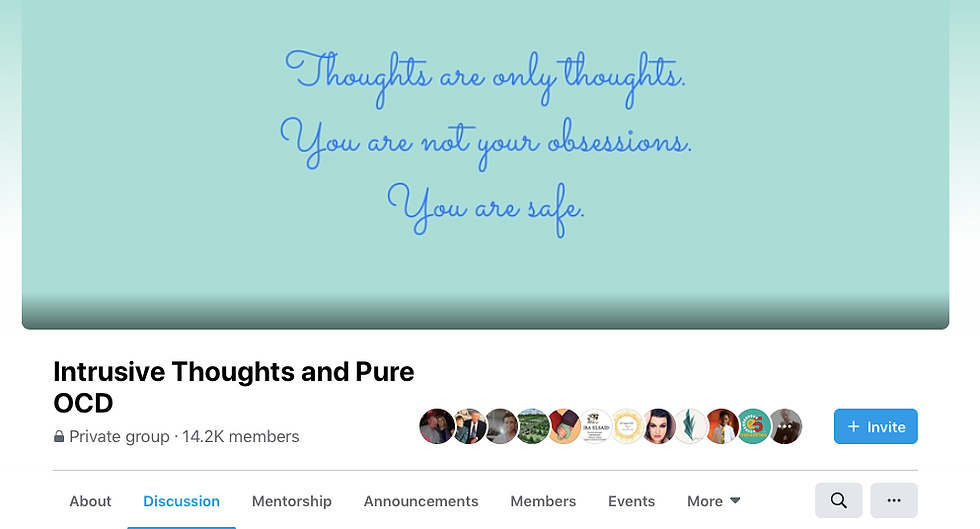Week 2
- kjgraham2000
- Oct 7, 2020
- 3 min read
Updated: May 17, 2021
We started this week with a big group lecture where we had to prepare our own project brief for - mine is shown below:

As I am now certain that I would like to base my project around mental health, I catered the criteria towards this. As we split off into our creative groups it was very insightful to learn about my group members projects. We shone a light onto my brief for a few moments and it was great to gather feedback about my chosen field. As we are at the initial stage of our projects it is difficult to give contrastive feedback to each other but that will come in the next few weeks.
This week I have also joined groups on Facebook which are specific to discuss intrusive thoughts and Pure OCD. This site is a safe space where sufferers and family members can share experiences and ask questions on the matter. It is a useful page for me too, as I can gather a lot of perceptions of people living with OCD - which will be crucial for me to understand this mental health issue. A huge point that I took from this area of research is that DISTRACTION IS KEY, this is an area that I would like to discover further.

I then investigated more into distraction methods, there are common ones such as being on a mobile phone or tablet and watching television. I found these are not beneficial to our everyday lives, they are ultimately just a short-term fix. The most popular products currently on the market for people suffering with anxiety or ADHD is fidget spinners or fidget cubes. These products stimulate the brain which makes the mind focus on something else rather than intrusive thoughts. Doing simple tasks like washing the dishes or watching the television allows opportunity for the brain to wander. Therefore, a lengthy brain engaging task may be a solution to avoid extreme OCD attacks.
I continued to read Ali Greymond's book 'Pure OCD Recovery, Pure Obsessional OCD' in this chapter he spoke more about the recovery process. This is the area which I would like to target. The part that I was most drawn to was the everyday living help. This seen how factors such as diet, sleep and meditation help contribute to recovery. This looks like a good area to explore as they are all natural healing processes because medication is not necessary in Pure OCD recovery. I may focus on how someone currently living with OCD runs on every day life and what trends and patterns trigger an attack.
I had planned an interview with someone who is currently diagnosed with Pure OCD but unfortunately, they did not feel up to it. I will rearrange when the time is suitable for the participant. It is important for me to remember to be considerate towards others while conducting my research. Therefore, I will do things at their desired pace, this method is completely fine by me as I am adamant that their recovery takes priority, and I am pleased that they are able to be honest with me during this process and let me know when they are struggling this allows me to understand their mind set further.
Next weeks steps:
- Source examples of daily schedules of people living with pure OCD and how the mental impairment affects their life
- Study these schedules to figure out patterns of triggers




Comments